
Antigone: Montpellier's Modern Marvel
Welcome to Antigone, a striking and modern neighbourhood in Montpellier, France. Designed by the renowned Spanish architect Ricardo Bofill, Antigone is a masterful blend of neoclassical design and contemporary urban planning. The area stretches from the Place de la Comédie to the banks of the Lez River, offering a visual journey through grand arches, symmetrical buildings, and expansive squares. The neighbourhood is best known for its unique architectural style, which takes inspiration from ancient Greek and Roman aesthetics. As you walk through Antigone, you'll be greeted by impressive colonnades, stately statues, and well-manicured gardens. The central Esplanade de l'Europe is a must-visit, featuring a stunning fountain and open spaces perfect for a leisurely stroll or a picnic. Antigone is not just about architecture; it’s also a vibrant hub for shopping, dining, and leisure activities. The area hosts a variety of boutiques, cafes, and restaurants where you can sample local and international cuisine. Don’t miss the local markets that pop up regularly, offering fresh produce, artisanal goods, and a chance to mingle with the locals. Whether you’re interested in history, architecture, or simply enjoying a relaxed atmosphere, Antigone offers a unique and enriching experience for every visitor.
Local tips in Antigone
- Visit early in the morning or late in the afternoon to avoid the midday heat and enjoy a more peaceful atmosphere.
- Bring a camera; the unique architectural details and expansive squares are perfect for photography.
- Check out the local markets for fresh produce and artisanal goods; they are a great way to experience local culture.
- Wear comfortable shoes as the best way to explore Antigone is on foot.
- Don't miss the Esplanade de l'Europe for a relaxing break and beautiful views of the Lez River.
Antigone: Montpellier's Modern Marvel
Welcome to Antigone, a striking and modern neighbourhood in Montpellier, France. Designed by the renowned Spanish architect Ricardo Bofill, Antigone is a masterful blend of neoclassical design and contemporary urban planning. The area stretches from the Place de la Comédie to the banks of the Lez River, offering a visual journey through grand arches, symmetrical buildings, and expansive squares. The neighbourhood is best known for its unique architectural style, which takes inspiration from ancient Greek and Roman aesthetics. As you walk through Antigone, you'll be greeted by impressive colonnades, stately statues, and well-manicured gardens. The central Esplanade de l'Europe is a must-visit, featuring a stunning fountain and open spaces perfect for a leisurely stroll or a picnic. Antigone is not just about architecture; it’s also a vibrant hub for shopping, dining, and leisure activities. The area hosts a variety of boutiques, cafes, and restaurants where you can sample local and international cuisine. Don’t miss the local markets that pop up regularly, offering fresh produce, artisanal goods, and a chance to mingle with the locals. Whether you’re interested in history, architecture, or simply enjoying a relaxed atmosphere, Antigone offers a unique and enriching experience for every visitor.
Iconic landmarks you can’t miss
Pavillon Populaire
Discover the vibrant art scene at Pavillon Populaire, Montpellier's premier museum for contemporary photography and artistic expression, nestled in a historic setting.
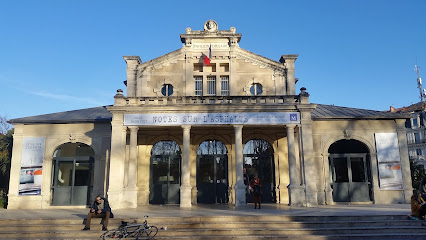
Esplanade de l’Europe
Discover the historical charm of Esplanade de l'Europe in Montpellier, where culture, architecture, and vibrant atmospheres come together.
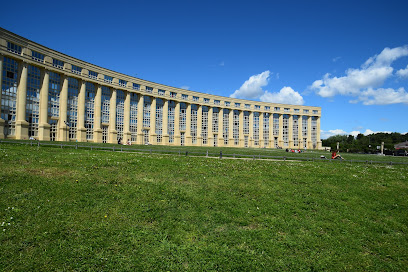
Fountain of the Three Graces
Discover Montpellier's iconic Fountain of the Three Graces, a stunning centerpiece in the vibrant Place de la Comédie, perfect for relaxation and exploration.
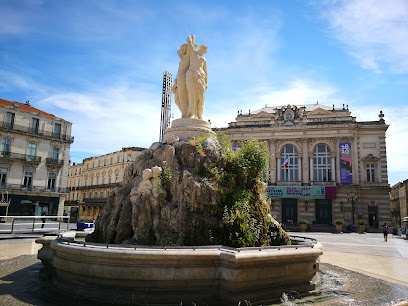
Fontaine Thessalie
Discover the charm of Fontaine Thessalie, a stunning fountain in Montpellier that captures the essence of French architectural beauty and local culture.
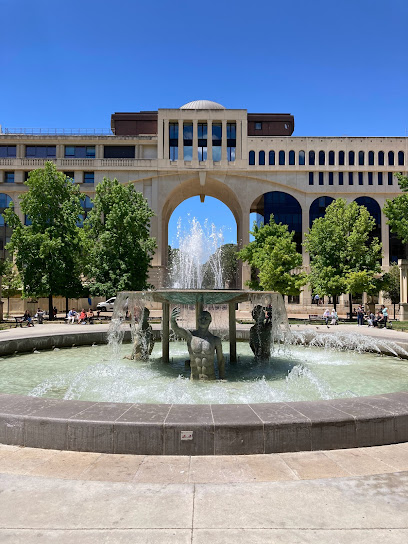
Place Zeus
Explore the enchanting Place Zeus in Montpellier, a vibrant square rich in history and culture, perfect for leisurely strolls and delightful culinary experiences.
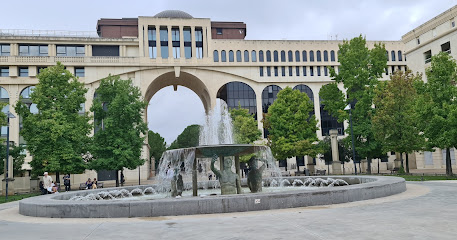
Place du Nombre d'Or
Discover the vibrant heart of Montpellier at Place du Nombre d'Or, a historic square filled with charm and cultural experiences.
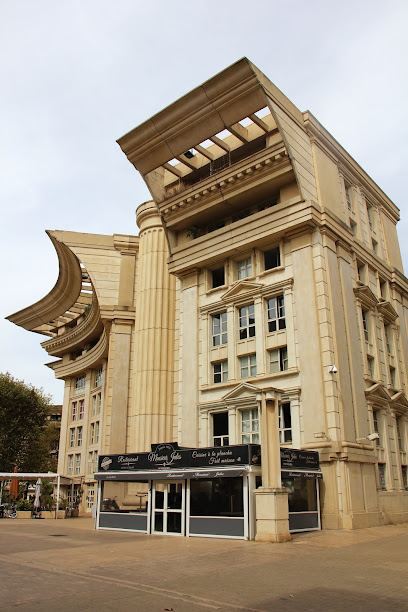
Square Adamantios Korais
Experience the serene beauty of Square Adamantios Korais, a peaceful park in Montpellier, ideal for relaxation, picnics, and enjoying nature's tranquility.
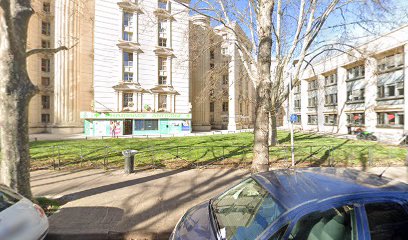
Statue d’Orlando Furioso, Montpellier
Discover the enchanting Statue d’Orlando Furioso in Montpellier, a captivating sculpture that tells the tale of heroism and artistry in the heart of France.
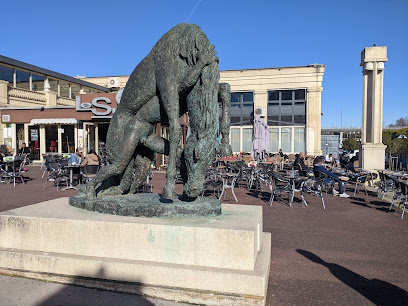
Statue de Jacques Cœur
Discover the rich history of Montpellier at the iconic Statue de Jacques Cœur, a landmark celebrating France's illustrious merchant and financier.
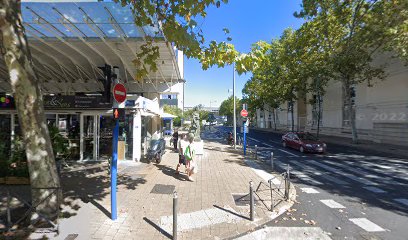
Monument aux Morts de Montpellier
Discover the Monument aux Morts de Montpellier, a serene memorial honoring the brave souls lost in war, nestled in the heart of the city.
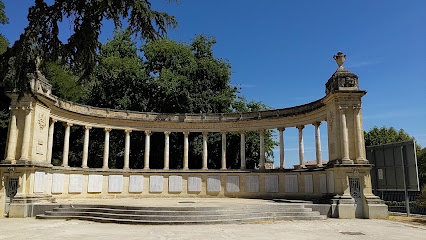
Unmissable attractions to see
Place Zeus
Experience the vibrant heart of modern Montpellier at Place Zeus, a neoclassical square offering architectural beauty, social energy, and cultural significance in the Antigone district.
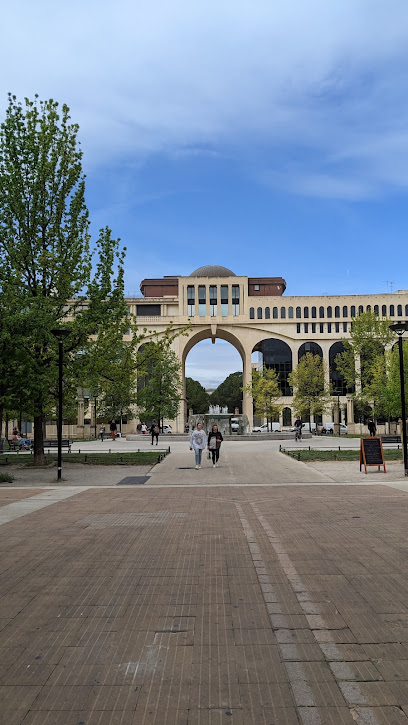
Place du Nombre d'Or
Experience the enchanting Place du Nombre d'Or in Montpellier, where history, culture, and local life come together in a vibrant square.
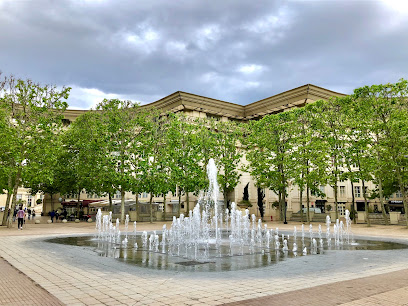
Essential places to dine
Hippopotamus Steakhouse
Experience exceptional French cuisine and succulent steaks at Hippopotamus Steakhouse in Montpellier – perfect for families and meat lovers alike.
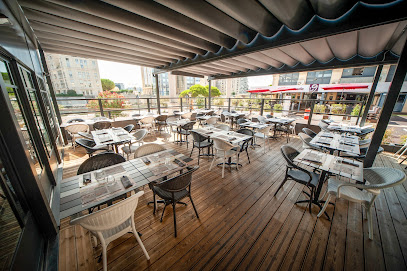
Le Bistro Romain Montpellier
Experience the best of French and Italian cuisine at Le Bistro Romain Montpellier - where every meal is a celebration of flavor.
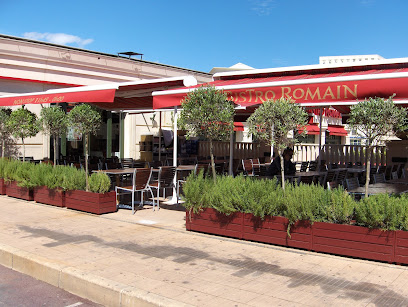
Chô Chaï Montpellier - Thaï Street Food
Experience authentic Thai street food at Chô Chaï Montpellier – a delightful culinary journey awaits in the heart of France.
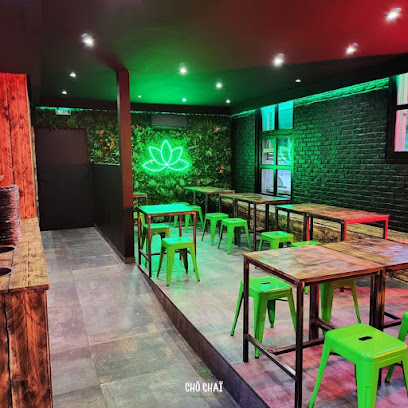
Volfoni Antigone Montpellier
Experience the best of Italian cuisine at Volfoni Antigone Montpellier with mouth-watering pizzas and a delightful atmosphere.
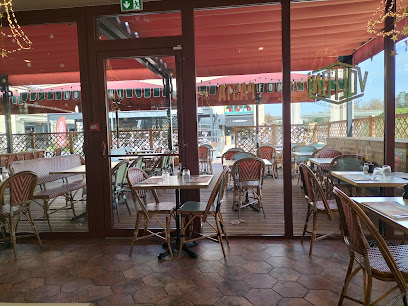
Restaurant L'Arlequin
Discover Mediterranean delights at Restaurant L'Arlequin – a premier dining destination blending French charm with exquisite flavors in Montpellier.
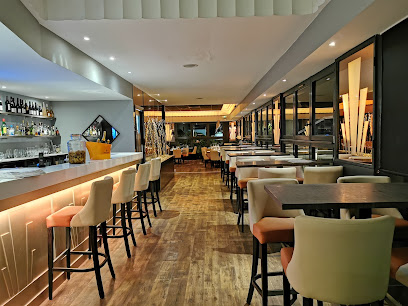
Restaurant Isabella
Experience exquisite French cuisine at Restaurant Isabella in Montpellier - where culinary artistry meets warm hospitality.
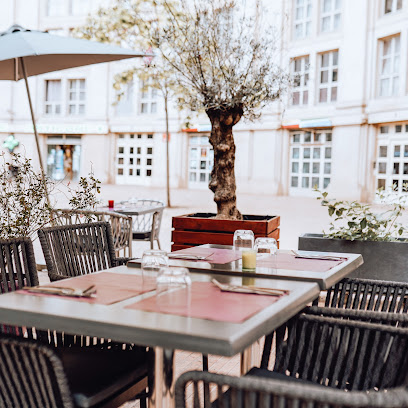
Les Bistronomes
Discover exquisite French cuisine at Les Bistronomes in Montpellier – where tradition meets modern culinary artistry.
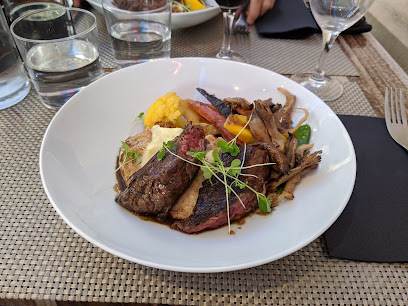
LA CANTINE by THE BABEL COMMUNITY – Montpellier Antigone l Restaurant Convivial
Discover the vibrant flavors of Mediterranean cuisine at La Cantine by The Babel Community in Montpellier's Antigone district.
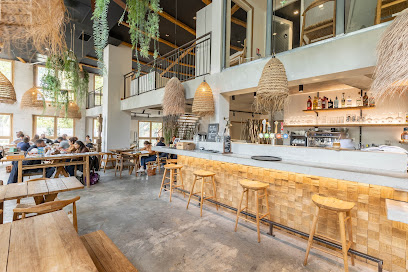
Restaurant Monsieur Jules
Experience authentic French cuisine at Restaurant Monsieur Jules in Montpellier – where tradition meets innovation in every dish.
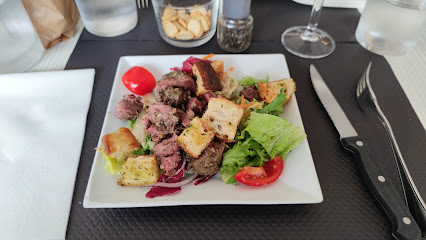
Pourquoi Pas
Discover authentic Italian pizza at Pourquoi Pas in Montpellier - where quality ingredients meet warm hospitality.
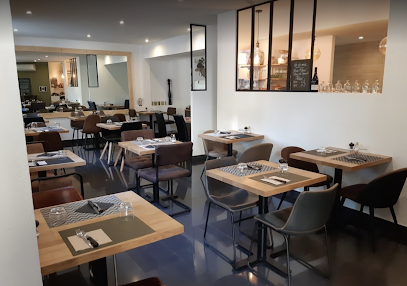
Markets, malls and hidden boutiques
Centre Commercial Le Polygone
Experience the vibrant shopping and dining options at Centre Commercial Le Polygone, Montpellier's premier shopping destination for tourists and locals alike.
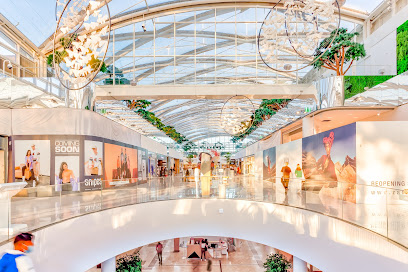
Galeries Lafayette
Discover the luxury and variety of Galeries Lafayette, a premier shopping destination in Montpellier, France, offering fashion, beauty, and home goods.
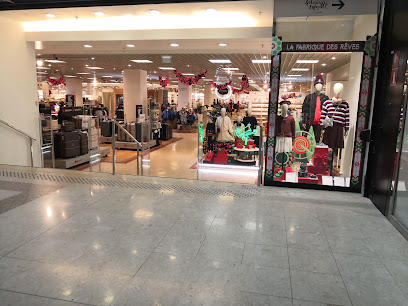
Nature and Discoveries
Explore Nature and Discoveries in Montpellier for unique, eco-friendly gifts and souvenirs that celebrate the beauty of the natural world.
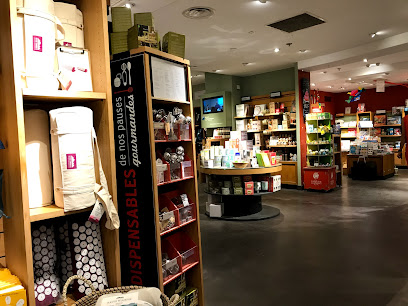
Undiz
Explore Undiz in Montpellier for trendy lingerie, swimwear, and women's fashion—an essential stop for style-savvy travelers.
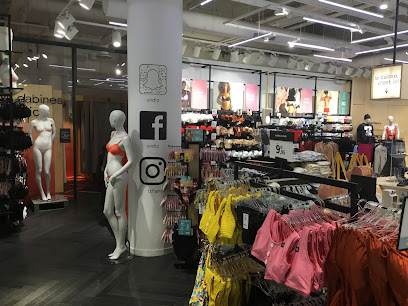
PIMKIE
Discover the latest women's fashion trends at PIMKIE in Montpellier, where style meets affordability in a chic shopping atmosphere.
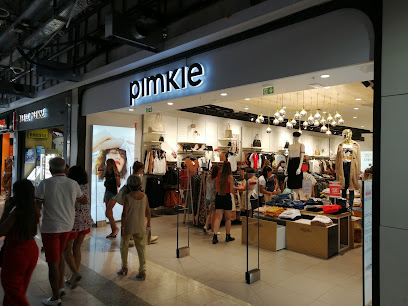
IKKS General Store
Explore IKKS General Store in Montpellier, your fashion destination for stylish clothing and accessories for all ages, embodying chic French elegance.
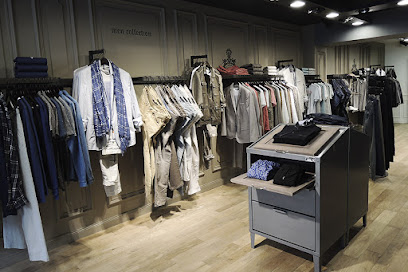
Sandro - Galerie Lafayette Montpellier
Explore the chic collections at Sandro in Montpellier's Galerie Lafayette, where fashion meets sophistication and elegance.
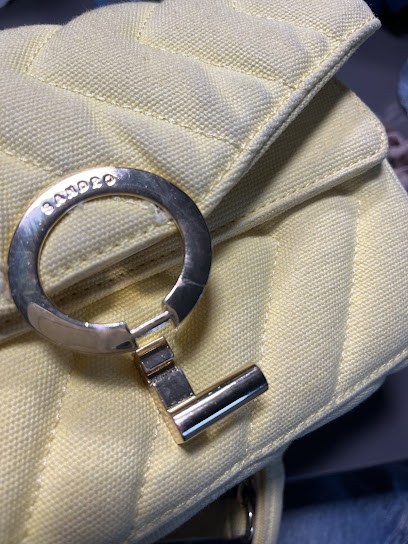
Soeur - Galeries Lafayette Montpellier
Discover contemporary women's fashion at Soeur in Montpellier, where style meets elegance in a chic shopping ambiance.
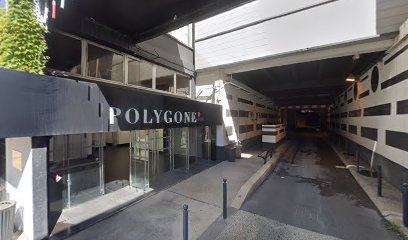
Longchamp
Discover elegance and style at Longchamp in Montpellier, where luxury meets craftsmanship in fashion accessories and leather goods.
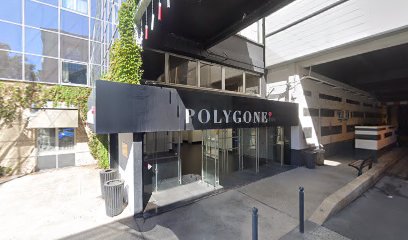
HOPE! Concept Store
Shop the latest fashion trends at HOPE! Concept Store in Montpellier's vibrant Polygone shopping center, where style meets comfort.
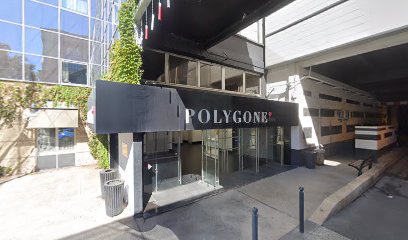
Essential bars & hidden hideouts
Les BerThoM Montpellier
Experience the lively spirit of Montpellier at Les BerThoM, where craft beer meets local culture in a vibrant bar atmosphere.
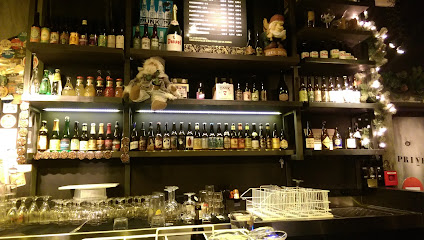
O’Sullivans Pub Montpellier
Discover the heart of Irish culture at O’Sullivans Pub Montpellier, where lively atmosphere meets delicious food and drinks.
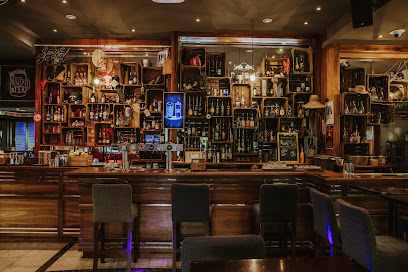
Ayers Rock Montpellier
Experience the electrifying nightlife of Montpellier at Ayers Rock, where music, cocktails, and a vibrant atmosphere await every night.
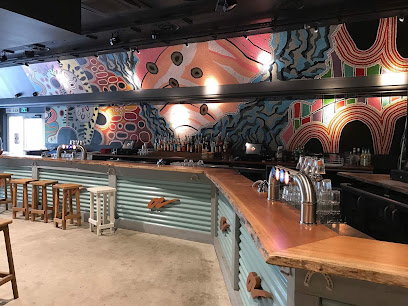
Burnout Bar
Discover Burnout Bar in Montpellier: A vibrant cocktail bar offering karaoke and arcade games for an unforgettable night out.
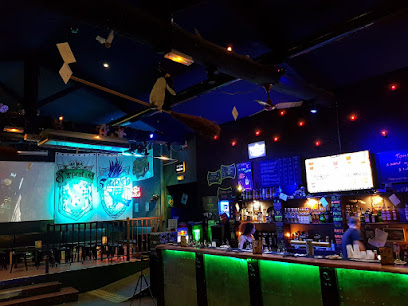
Barberousse
Experience the vibrant nightlife of Montpellier at Barberousse, a bar offering a delightful selection of drinks and a lively atmosphere perfect for socializing.
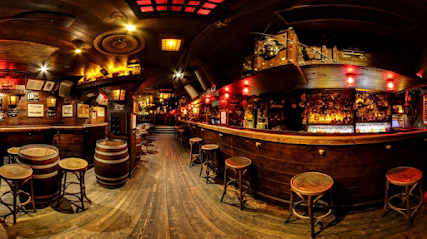
LA CANTINE by THE BABEL COMMUNITY – Montpellier Antigone l Restaurant Convivial
Indulge in delicious tapas and innovative cocktails at LA CANTINE, a culinary haven in Montpellier's vibrant Antigone district.
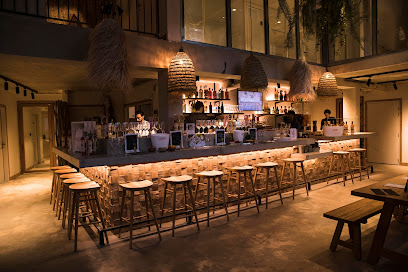
Under Roof Bar
Discover Under Roof Bar: A vibrant cocktail bar and restaurant in Montpellier offering innovative drinks and exquisite cuisine in a lively atmosphere.
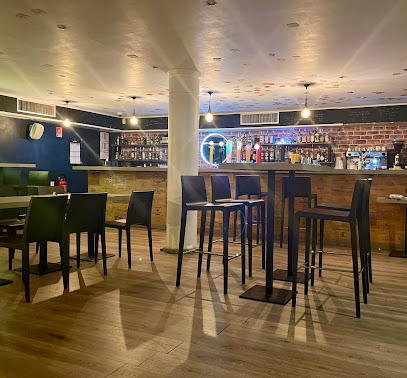
Café Latin
Experience the vibrant atmosphere and delightful cocktails at Café Latin, a must-visit bar in Montpellier for every traveler.
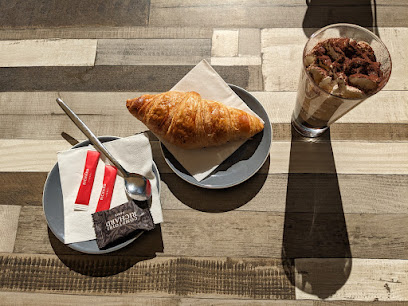
Casal David
Experience the charm of Montpellier at Casal David, a cozy bar offering local wines, craft beers, and a welcoming atmosphere for all visitors.
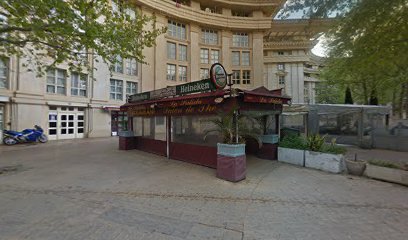
Ghost vibes
Discover the allure of Ghost Vibes Bar in Montpellier, where the spirits of creativity and atmosphere converge for an unforgettable night out.
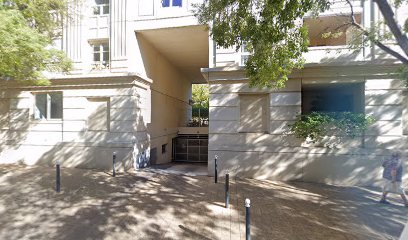
Local Phrases
-
- HelloBonjour
[bon-zhoor] - GoodbyeAu revoir
[oh ruh-vwahr] - YesOui
[wee] - NoNon
[nohn] - Please/You're welcomeS'il vous plaît/De rien
[seel voo pleh/duh ryen] - Thank youMerci
[mehr-see] - Excuse me/SorryExcusez-moi/Désolé
[ehk-skew-zay mwa/day-zoh-lay] - How are you?Comment ça va?
[koh-mohn sa vah] - Fine. And you?Bien. Et vous?
[byen. ay voo] - Do you speak English?Parlez-vous anglais?
[par-lay voo ahn-glay] - I don't understandJe ne comprends pas
[zhuh nuh kohm-prahn pah]
- HelloBonjour
-
- I'd like to see the menu, pleaseJe voudrais voir le menu, s'il vous plaît
[zhuh voo-dray vwahr luh meh-nyoo, seel voo pleh] - I don't eat meatJe ne mange pas de viande
[zhuh nuh mahnj pah duh vyahnd] - Cheers!Santé!
[sahn-tay] - I would like to pay, pleaseJe voudrais payer, s'il vous plaît
[zhuh voo-dray pay-yay, seel voo pleh]
- I'd like to see the menu, pleaseJe voudrais voir le menu, s'il vous plaît
-
- Help!Au secours!
[oh suh-koor] - Go away!Allez-vous-en!
[ah-lay vooz ahn] - Call the Police!Appelez la police!
[ah-peh-lay lah poh-leece] - Call a doctor!Appelez un médecin!
[ah-peh-lay uh may-day-sahn] - I'm lostJe suis perdu(e)
[zhuh swee pair-doo] - I'm illJe suis malade
[zhuh swee mah-lahd]
- Help!Au secours!
-
- I'd like to buy...Je voudrais acheter...
[zhuh voo-dray zah-shey] - I'm just lookingJe regarde juste
[zhuh ruh-gahrd zhuhst] - How much is it?Combien ça coûte?
[kohm-byen sah koot] - That's too expensiveC'est trop cher
[say troh shay] - Can you lower the price?Pouvez-vous baisser le prix?
[poo-veh voo bay-say luh pree]
- I'd like to buy...Je voudrais acheter...
-
- What time is it?Quelle heure est-il?
[kehl uhr ay-teel] - It's one o'clockIl est une heure
[eel ayz oon uhr] - Half past (10)Dix heures et demi
[dees uhr ay dem-ee] - MorningMatin
[mah-tahn] - AfternoonAprès-midi
[ah-pray-mee-dee] - EveningSoir
[swahr] - YesterdayHier
[ee-ehr] - TodayAujourd'hui
[oh-zhoor-dwee] - TomorrowDemain
[duh-mahn] - 1Un
[uhn] - 2Deux
[duh] - 3Trois
[trwah] - 4Quatre
[kat] - 5Cinq
[sank] - 6Six
[sees] - 7Sept
[set] - 8Huit
[weet] - 9Neuf
[nurf] - 10Dix
[dees]
- What time is it?Quelle heure est-il?
-
- Where's a/the...?Où est le/la...?
[oo ay luh/lah] - What's the address?Quelle est l'adresse?
[kehl ay lah-dress] - Can you show me (on the map)?Pouvez-vous me montrer (sur la carte)?
[poo-veh voo muh mohn-tray (soor lah kart)] - When's the next (bus)?Quand est le prochain (bus)?
[kahnd ay luh proh-shang (boos)] - A ticket (to ....)Un billet (pour ....)
[uhn bee-yay (poor)]
- Where's a/the...?Où est le/la...?
History of Antigone
-
The Antigone neighborhood in Montpellier was designed by the famous architect Ricardo Bofill in the 1980s. Its construction was part of a larger urban project aimed at revitalizing the city, which had seen significant growth and modernization following World War II. Bofill's vision was to create a harmonious blend of classical architecture with modern urban living, inspired by ancient Greek and Roman designs, hence the name 'Antigone'.
-
Antigone is characterized by its neoclassical architecture, featuring grand boulevards and monumental buildings. This architectural style reflects Montpellier's historical ties to the Mediterranean and its ambition to position itself as a cultural center in the region. The area has become a vibrant hub for arts and culture, with numerous galleries, theaters, and public spaces that host events, contributing to the city's cultural identity.
-
The development of Antigone was also marked by an emphasis on green spaces and public parks. The Esplanade de l'Europe, a major public square in the neighborhood, serves as a gathering place for residents and visitors alike. This focus on urban greenery is a reflection of Montpellier's commitment to sustainability and enhancing the quality of urban life, aligning with broader trends in modern city planning.
-
Antigone is well-connected to the rest of Montpellier through a network of public transportation, including trams and buses. The introduction of the tram system in the early 2000s significantly improved access to the area, making it more attractive for both residents and tourists. The efficient transportation links have supported the neighborhood's growth as a desirable place to live and work.
-
The Antigone neighborhood has become a symbol of multiculturalism in Montpellier, hosting a diverse population that contributes to its dynamic atmosphere. Various cultural festivals and events are held throughout the year, celebrating the rich tapestry of traditions and backgrounds present in the area. This diversity is a vital aspect of Montpellier's identity, enhancing the social fabric of the city.
Antigone Essentials
-
Antigone is easily accessible from other neighborhoods in Montpellier. If you are arriving by train, take the tram line 1 from the Montpellier Saint-Roch station and disembark at the 'Antigone' stop. For those coming from the airport, the Montpellier Méditerranée Airport offers shuttle bus services that connect to the city center, where you can switch to tram line 1. Additionally, local buses also connect various neighborhoods to Antigone, making it convenient for travelers.
-
Antigone is well-connected by public transportation. The tram system is the most efficient way to navigate the area, with the Antigone stop serving as a central hub. Biking is also a popular option, with bike rental services available throughout the city. Montpellier has a bike-sharing program called 'Vélomagg,' which allows you to rent bicycles for short trips. Walking is also a pleasant way to explore the picturesque architecture and parks of Antigone.
-
Antigone is generally a safe area for tourists, but like any urban environment, it's wise to remain vigilant. Petty crimes such as pickpocketing can occur, particularly in crowded areas. It is advisable to avoid the outskirts of the city at night, especially around the neighborhoods of La Paillade and Figuerolles, which have been reported to have higher crime rates. Always keep your belongings secure and be cautious when using ATMs.
-
In case of an emergency, dial 112 for immediate assistance in France. This number can connect you to police, fire, or medical services. The nearest hospital to Antigone is the Centre Hospitalier Universitaire, located a short tram ride away. For minor health issues, there are several pharmacies in the area where you can find over-the-counter medications. Always ensure you have adequate travel insurance that covers medical emergencies.
-
Fashion: Do dress appropriately, especially when visiting religious sites or formal places. Avoid overly casual or revealing attire. Religion: Do be respectful of local customs and practices, particularly during religious events. Public Transport: Do offer your seat to the elderly and those in need. Don't eat or drink on public transport. Greetings: Do greet people with a friendly 'Bonjour' during the day or 'Bonsoir' in the evening. Eating & Drinking: Do try local wines and cuisines at restaurants. Don't engage in loud conversations in public spaces, as this is often frowned upon.
-
To experience Antigone like a local, consider visiting the nearby Esplanade de l'Europe, a popular gathering place for locals. Enjoy a leisurely stroll along the River Lez or relax in the Parc Rimbaud. Explore the local cafes and patisseries for authentic French pastries and coffee. Engaging with locals in conversations about the area can provide insights into hidden gems not found in guidebooks. Also, check out the local markets for fresh produce and artisanal goods.
Nearby Cities to Antigone
-
Things To Do in Nîmes
-
Things To Do in Avignon
-
Things To Do in Marseille
-
Things To Do in Aix-en-Provence
-
Things To Do in Toulouse
-
Things To Do in Girona
-
Things To Do in Pas de la Casa
-
Things To Do in Soldeu
-
Things To Do in Canillo
-
Things To Do in El Serrat
-
Things To Do in Ordino
-
Things To Do in Encamp
-
Things To Do in Saint-Tropez
-
Things To Do in La Massana
-
Things To Do in Escaldes-Engordany






